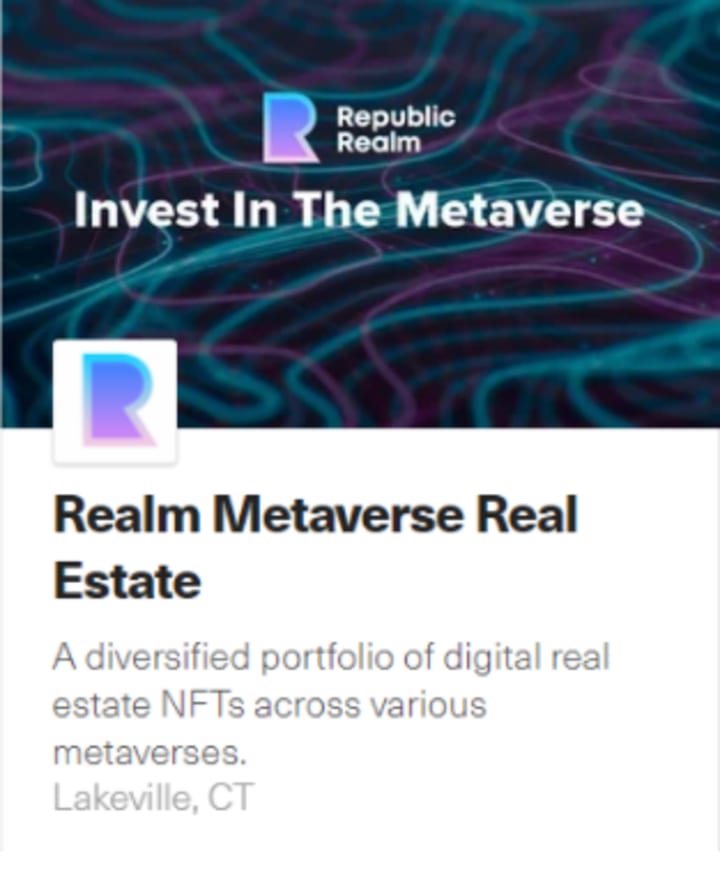Anyone Can Be a Venture Capitalist, Here’s How.
The trend towards democratizing finance finally hit this exclusive market.

Personally, this ‘democratize finance’ trend is one that I have always been a massive supporter of. While I do think Robinhood has lost touch with its roots in recent times, its goal was noble. Reducing the barriers to entry for the everyday investor to trade stocks, learn finance, and build wealth. This movement was one that was most prominently seen in 2020 and 2021 when people were staying at home and finding ways to make money online. The likes of WallstreetBets were seen around the world, and private equity and hedge funds now have to consider retail investors in their risk assessments and investing strategies. It’s a phenomenal thing to be a part of, and I am thrilled to live in a time when this is happening.
One aspect of this that hasn’t quite hit the big stage just yet, is the even more exclusive Venture Capital market.
What is Venture Capital?
Venture Capital is a high-risk high-reward type of investing where you buy shares in early-stage companies and startups, typically in a diversified manner, in the hopes one of them makes it big. Usually, the idea is buying a small amount in a diversified pool of companies, usually with valuations as low as $5m, then hoping that it becomes a billion-dollar company, and pays for the rest of your portfolio.
So, if you put $500 in 10 companies, that’s more like one $5000 investment, instead of 10 — $500 investments in reality. It’s not like the normal stock market where you expect a return from your Apple stock, and your Microsoft stock, and your Tesla stock. Typically, you should only expect a return from 10–30% of your investments.
So, on that $5000, you bought into, say, 10 different companies at a $20 million valuation. That company becomes worth $1 billion, and the rest go out of business or just haven’t given a return yet. That means your $5000 is now $25,000, which comes out to a little bit less than 40% consistent over 5 years. Again, notice how I am not saying “Well, this company is giving 500% returns, and the rest are giving 0% returns” because this is all about diversification. Obviously, in a perfect world, you would pick 10/10, but that’s just not realistic. So, you choose a bunch of companies that you think are going to make it big, then hope for the best. Also, that number is calculated on the lower end of the spectrum, in that only 1 of 10 worked out, but it was a big payday. Similarly, it could big 1 big payday, and two that doubled your money, and any number of combinations.
Now, also note this is illiquid and very long-term investing, so when you first start investing, this is literally extra money you, quite literally, won’t need for another 5 years at a minimum. Generally, these are 5–7 year investments, and you are unlikely to see liquidity before then, CURRENTLY, but there are solutions to this in the works I will get into later.

Ok, How do I get started?
What I am talking about is a market called “Equity Crowdfunding.” Similar to the normal crowdfunding everyone knows and loves, the ‘crowd’ pools money together, but instead of funding an early-stage product, you’re purchasing stock and funding an early-stage company.
While it definitely started off extremely niche, it’s been growing in prominence in recent years. Personally, I would definitely classify it, currently, as a pretty niche corner of the world. Most people don’t know about it, even in the investing world, but it’s been rapidly growing in popularity.
Generally, it draws a crowd because it has the asset-backed valuation metrics of the larger stock market, but the high-risk, high-reward that the crypto market offers (with significantly less scams too). Not to mention, anyone currently involved is not only getting involved in early-stage companies but the early stages of the entire industry as well. This allows you the most flexibility to take advantage of a host of opportunities that might be raising at higher valuations down the line, and the potential to be the success story that hits the news in a couple of years that blows up the whole industry and lands you on the front page of the papers for a few days.
Getting Involved
Generally, there are four main sites that you can go to, each with its own perks and reasons to use that site, but all generally pretty solid. There are actually quite a lot more, but the main ones are:
-Startengine.com
-Wefunder.com
-Republic.co
-Seedinvest.com
All of these sites host a plethora of phenomenal companies that you can browse and see if they are companies that interest you. If you see one, or a few, that you think have the potential to be the ‘next big thing’ then it’s generally as simple as making an account, clicking a button, and giving them the funds.
As a quick overview, Wefunder tends to host the earliest stage companies of all. These can be valuations at less than $1 million, which means they are by far the highest risk/reward. While they obviously have bigger companies, they tend to be the go-to for the absolute earliest stage companies. Republic is on a bit of an opposite end. They tend to have a lot of closed offerings for wealthier investors, but they, again, also have plenty for the everyday investor. They also have a host of extremely innovative products from music royalties to a ‘metaverse REIT’.
SeedInvest has the fewest companies, but they are also the hardest to get on because they personally vet every company on the site. Lastly, is StartEngine. They’re one of my favorites because they have a host of options. Generally, companies are raising funds between 10–30 Million valuation range there, but they have the occasionally larger raise with companies in the hundreds of millions. They also are the only one on the list with a U.S.-based Secondary market, where you can trade your shares, and get liquidity.
Choosing Companies
I am not gonna lie to you, there’s no secret sauce to this. In fact, anyone who claims to have a winning strategy is full of garbage. Sure, you can do things to increase your odds, but at the end of the day, no one can control the market. They might have a great idea, but it’s too early, or a terrible idea that just so happens to go viral. Sure, a seasoned veteran will do better than someone that takes some names, put’s em on a dartboard, and starts choosing companies at random, but it’s all up to you.
Generally, it’s best to hunker down in a niche that you believe in and have your own expertise so that you can, quite frankly, know when to call B.S. on a company. Most companies aren’t total B.S. to the untrained eye, but after you do some research or know more about the industry, you can spot a fairy tale company from a mile away.
Types of Companies
Just like normal investing, there’s literally everything in every industry. Just to give you a preview of what you’re getting into, here are a few popular raises and industries.
FinTech

eVTOL’s

Crypto

Alternative Assets

Uh….

Conclusion
As you can see, there are quite a few options to invest in, for pretty much any industry. It mostly just depends on what you’re interested in, know about, and also just generally want to support. For example, if you want to make the world a better place, you can invest in ‘GreenTech’. You can support minority-owned businesses, or help fund the future by buying shares in flying car companies.






Comments
There are no comments for this story
Be the first to respond and start the conversation.